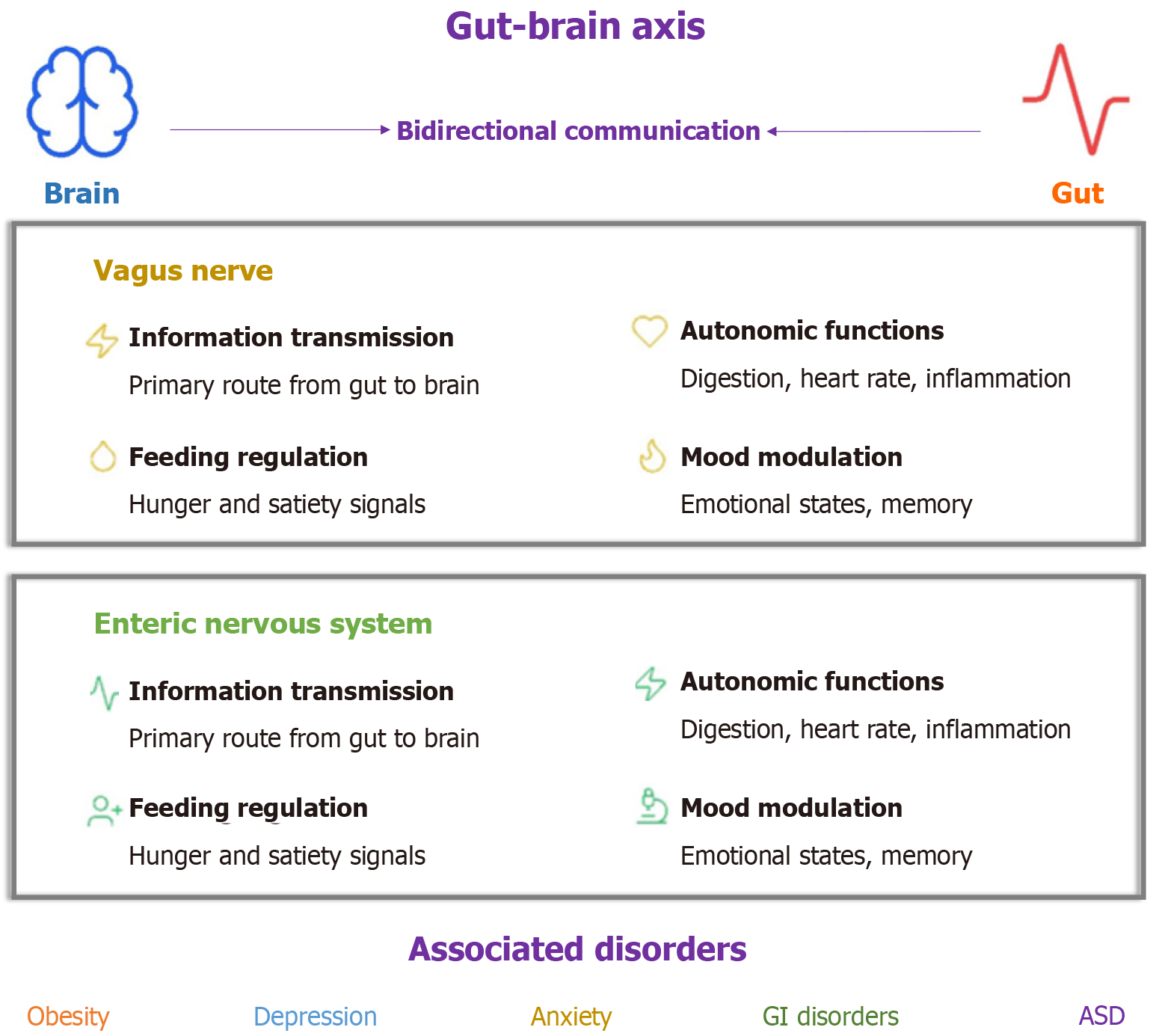Copyright
©The Author(s) 2025.
World J Psychiatry. May 19, 2025; 15(5): 103751
Published online May 19, 2025. doi: 10.5498/wjp.v15.i5.103751
Published online May 19, 2025. doi: 10.5498/wjp.v15.i5.103751
Figure 1 Gut-brain axis and roles of the vagus nerve and the enteric nervous system in brain function and their relevance to schizoph
- Citation: Iqbal A, Bokhari SFH, Rehman MU, Faizan Sattar SM, Bakht D, Dost W, Basit A. Gut-brain connection in schizophrenia: A narrative review. World J Psychiatry 2025; 15(5): 103751
- URL: https://www.wjgnet.com/2220-3206/full/v15/i5/103751.htm
- DOI: https://dx.doi.org/10.5498/wjp.v15.i5.103751









